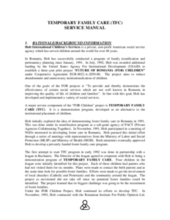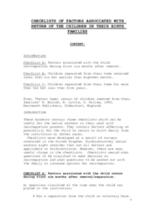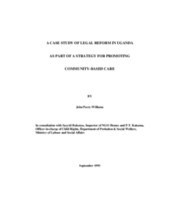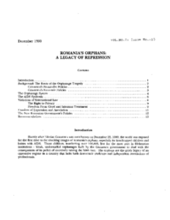Displaying 14361 - 14370 of 14550
A manual for the establishment of foster care in Romania as an alternative to the institutional placement of children. Addresses the legal framework, policies, processes, responsibilities and administration surrounding creating and maintaining a foster care system.
Guidelines for foster care, developed by IFCO at a special Working Group Meeting held in Bangkok, Thailand from 1-4 May 1995 in cooperation with the Department of Public Welfare, Bangkok.
The aim of this guide is to draw together SCF’s recent experience of family tracing.
La Convention de La Haye du 29 mai 1993 sur la protection des enfants et la coopération en matière d'adoption internationale protège les enfants et leurs familles des risques d’adoptions à l’étranger illégales, irrégulières, prématurées ou mal préparées. Cette Convention qui fonctionne également par l’intermédiaire d’un système d’Autorités centrales nationales, renforce la Convention des Nations Unies relative aux droits de l'enfant (art. 21).
A set of 3 checklists suggesting interview questions for appropriately assessing whether reunification of a child with his or her family is possible.
This paper describes a case study examining the legal reforms made in Uganda in the area of community-based care.
This article, published in the book ‘Assessing the Long-Term Effects of Foster Care: A Research Synthesis,’ provides an overview of the history of the foster care system in the United States and findings from multiple studies on the effects of foster care on children.
Shortly after Nicolar Ceauscu was overthrown on December 22, 1989, the world was exposed for the first time to the shocking images of Romania's orphans, especially its children with disabilities and babies with AIDS.
The Convention on the Rights of the Child is a human rights treaty establishing the rights of children.
A brief paper highlighting the benefits of using home-visits to support child development and child protection. It suggests that drawing on local resources (including para-professionals and community volunteers) to do the home-visits can be an effective method of supporting families and reducing program costs.









